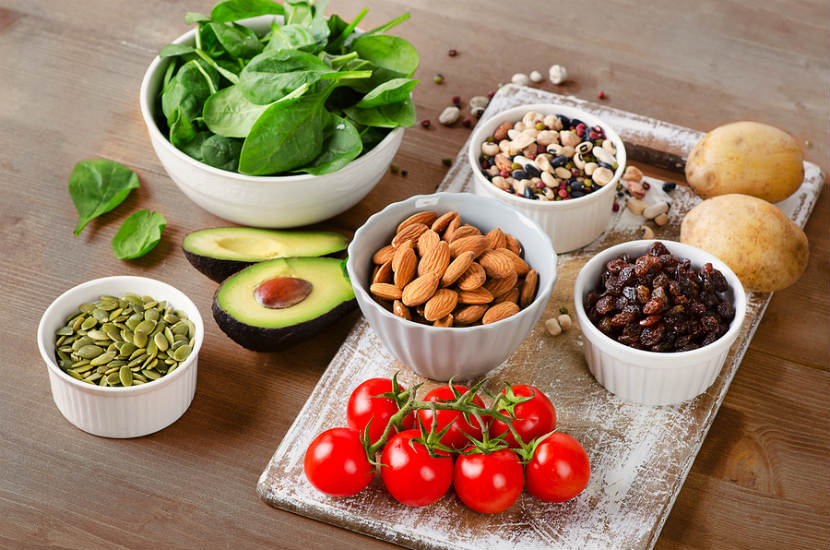
Potassium is an important mineral that your body needs to be healthy. Making sure you eat enough foods high in potassium is important for the health of your bones, kidneys, nerves and muscles. Read on to learn more about what foods have potassium and how much you need.
How much potassium do I need?
Most Canadians get enough potassium as long as they are making healthy choices based on Canada’s Food Guide.
The amount of potassium you need depends on your age and life stage. The table below shows you how much you need:
Age
|
Potassium
Amount needed per day
|
|
1 to 3 years old
|
3000 mg
|
|
4 to 8 years old
|
3800 mg
|
|
9 to 13 years old
|
4500 mg
|
|
Over 14 years old
|
4700 mg
|
|
Pregnant women (all ages)
|
4700 mg
|
|
Breastfeeding women
(14 to 50 years old)
|
5100 mg
|
Which foods have potassium?
Vegetables and fruit are some of the best sources of potassium. Grains, dairy products, lentils, meat and fish also have potassium. It is important to make sure you are eating a variety of foods to help you get the amount you need.
The table below will help you choose foods that have potassium:
Food
|
Serving Size
|
Potassium (mg)
|
|
Tomato paste
|
60 mL (¼ cup)
|
658
|
|
Potato, baked
|
1 (12cm x 6cm)
|
610
|
|
Pinto or kidney beans
|
175 mL (3/4 cup)
|
566 to 591
|
|
Lentils
|
175 mL (3/4 cup)
|
579
|
|
Avocado
|
½ whole
|
487
|
|
Squash, baked
|
125 mL (1/2 cup)
|
473
|
|
Banana
|
1 medium
|
422
|
|
Papaya
|
½ medium
|
392
|
|
Milk, 2%
|
250 mL (1 cup)
|
387
|
|
Chickpeas
|
175 mL (3/4 cup)
|
378
|
|
Yogurt
|
175 g (3/4 cup)
|
362
|
|
Fish
|
75 g (2 ½ oz)
|
313
|
Do I need a potassium supplement?
No. Healthy individuals do not need a potassium supplement unless a doctor recommends it. It is best to get the potassium you need from a variety of foods.
Should I use a salt substitute with potassium to increase my intake?
No. Potassium can come from sources other than food like some salt substitutes. However, it is best to get the potassium you need from natural sources whenever possible.
Will eating potassium rich foods prevent bone loss as you get older?
No. Eating a high-potassium diet is important for your health, but will not protect your bones from the bone loss related to aging. Read more about bone health here.
Meal and snack ideas
-
Take advantage of the seasons! Visit a farmer’s market for locally sourced fruit and vegetables.
-
Pack pre-cut and washed fruit and vegetables for school and work lunches. It makes getting your recommended servings easier!
-
Fill half of your dinner plate with vegetables. Cook vegetables with only a small amount of water. Try steaming, baking or microwaving. This limits the amount of potassium lost in cooking water. Learn about other ways to cook with wet heat.
-
Add vegetables to your favourite pasta dish. Oven-roasted zucchini, eggplant and asparagus make great, high-potassium additions.
-
Add tomato paste to your favourite sauce for added potassium and flavour.
-
Make your own granola or trail mix. Be sure to add dried fruits like apricots or raisins along with your favourite nuts and seeds. This makes a great topping to low fat yogurt as a satisfying morning snack.
Try these other nutritious recipes that are rich in potassium:
Banana muffins two ways
Minestrone soup
Lightened up guacamole and chips
You may also be interested in:
A DASH of healthy eating can help control blood pressure
Get the Scoop on Salt
Last Update – March 21, 2019